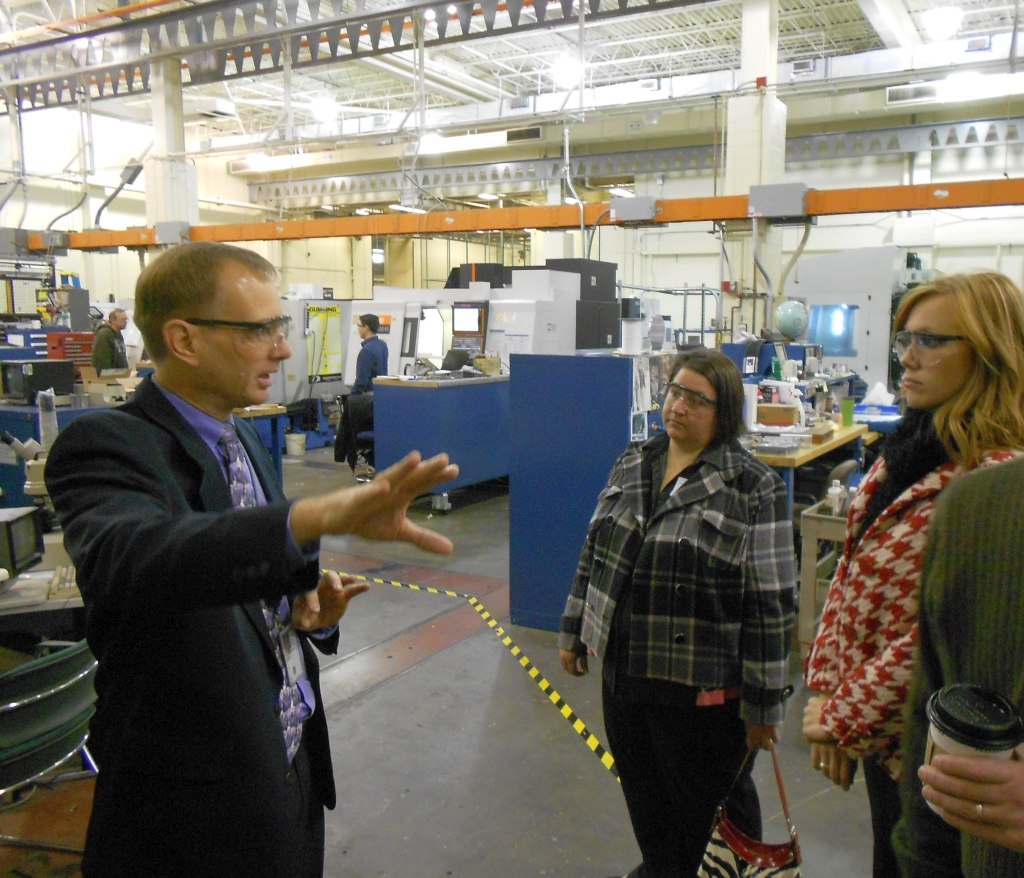Machine shops are important facilities where parts, components and equipment are produced. Most roles in a machine shop require some type of technical knowledge as these shops utilize a lot of complex equipment to complete welds, mill parts using computer-assisted design (CAD) software and craft components using computer numerical control (CNC) machines. Although workers in a machine shop are often required to have experience and/or an education in technical subjects, not all roles are technical in nature. Below are some non-technical roles you can expect to find in machine shops:
Safety Coordinator
A safety coordinator in an industrial setting is someone tasked with ensuring that the workplace is operating in a safe manner. Machine shop safety can involve everything from inspections to the filing of compliance paperwork, and the safety coordinator may also present training to keep workers up to date on the latest guidelines for machine shop safety. The role of a safety coordinator may also involve working with security personnel in larger facilities that employ large numbers of workers and experience heavy volumes of visitor and vendor traffic.
Human Resources Coordinator
Human resources professionals are vital in the efficient management of large groups of workers. Machine shops tend to employ a diverse workforce, and many operate 24 hours a day. This means that matters like logging hours, requesting vacation time off and selecting employment benefits must be coordinated to keep workers happy and the company profitable. A human resources coordinator will often work with machine shop owners and accountants to discuss financial matters. Additionally, the human resources coordinator will serve as a liaison for employees who wish to register complaints or provide feedback about working conditions.
Sales Manager
The sales manager at a machine shop is usually tasked with generating and nurturing leads as well as overseeing sales efforts. The sales manager role is typically given to one individual, but sales efforts are often undertaken by a team of sales professionals. While the sales manager generally doesn’t have anything to do with the actual creation of parts, components or finished goods at a machine shop, they may meet regularly with design teams and general labor managers to discuss current trends and upcoming product releases. A sales manager usually works from an office at the machine shop, but they may also be tasked with field sales from time to time.
Set-Up Specialist And Helper
Set-up specialists and helpers work closely with technicians on the production floor, but they are not responsible for technical work themselves. A set-up specialist is someone who sets up machinery or supplies for a machine shop technician. This process can include retrieving supplies from storage to have everything in place for the machinist to work with. A helper is someone who may be tasked with removing machined components and placing them in storage or taking them to the next station for further refinement.
Building Maintenance Worker
Maintaining the facility where a machine shop is located is very important to the safety and satisfaction of workers. Building maintenance workers are employed by machine shops to handle tasks like plumbing and HVAC inspection and maintenance as well as general repair and replacement. Some building maintenance workers may assist in the installation or replacement of technical equipment, but they themselves do not operate the equipment. In some cases, technicians from the equipment manufacturer will take care of installation since complex machine shop equipment often needs to be properly calibrated before it can be safely operated.
Product Manager
A product manager is a professional who oversees the conceptualization of new products while working with design teams and manufacturing professionals to create these new products. While some machine shops produce items for a variety of brands, others work in-house to produce parts and components for one brand. In the latter case, the product manager may coordinate with the sales and marketing departments to create digital and print collateral to promote new products or advertise new versions of existing products.



